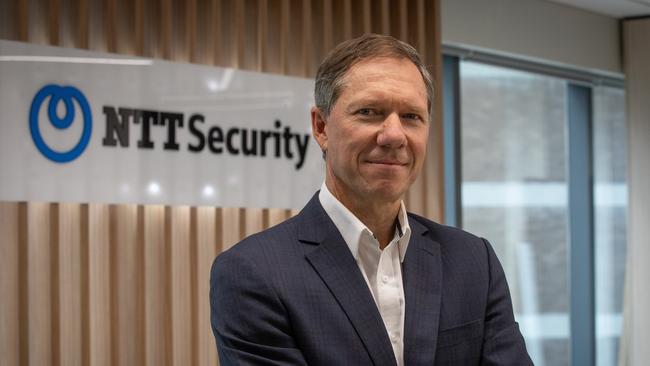Australians are increasingly falling victim to cyber crime, proving we’re all click bait
One Australian falls victim to scammers every eight minutes with self-reported losses from topping $33bn a year. Experts say no one is safe. Here’s how to protect yourself.
SmartDaily
Don't miss out on the headlines from SmartDaily. Followed categories will be added to My News.
Messages on your social media saying “Do not click on posts from me, I’ve been hacked” and warnings from work or your bank to not open suspicious emails or links are becoming the norm in Australia.
One Australian falls victim to cyber crime every eight minutes, with attempts to steal money and personal information becoming increasingly sophisticated.
While scammers previously only targeted government and big businesses, cyber security expert John Karabin says everyone is now at risk, with self-reported losses from cyber crimes topping $33bn a year.
“It doesn’t matter if you’re a waiter or the prime minister. It doesn’t matter if it’s your gym, gaming or bank account. If you use technology and you have any type of data, your account has value to a cyber attacker,’’ Karabin says.
SECURE YOURSELF
The latest report into data breaches from the Office of the Australian Information Commissioner found that 41 per cent of computer hacks were caused by human error.
“Awareness is the first step to changing behaviours so it’s important to talk about your experiences (of cyber crime) or any knowledge with your friends and family,’’ says Karabin, cyber security director at global tech service NTT.
He says multi-factor authentication, a security measure that requires two or more proofs of identity to grant access to your data, is essential as the “inconvenience” factor that scammers must endure can be enough to deter them.

Commonsense advice not to click on any links until you have verified them can also save you becoming a victim. “Scammers are good at disguising themselves as credible sources,” Karabin says.
“It might come in the form of an ‘urgent’ email from your so-called boss, a delivery note to say your parcel is stuck in transit and to confirm your details or a message saying you’ve won in-game credits. These impostors can easily sneak through, posing as someone or a business that you trust in order to get you to click that link and let them into your network.”
NOTHING SUSPICIOUS
Jody Rudlin, 26, was lucky not to lose more than his game ranking when hackers broke into his account for Valorant, a free-to-use online game, where he had his credit card details stored.
The account was worth at least $2500 due to in-game purchases Rudlin had made but, under the game rules, these cannot be traded or removed.
The hackers changed Rudlin’s account settings, putting him back at a lower game level, and deleted a list of more than 100 people he had friended while playing.
“This was a completely random occurrence. I hadn’t clicked on any suspicious links,” says Rudlin, who has since created an email account specific to gaming and has updated all his games with that email.

Rudlin now changes his online passwords monthly, ensuring they include more than 15 characters mixed with letters, numbers and symbols, and uses two-factor authentication wherever possible.
“Because I had card details saved, they probably could’ve gotten access to my financial records somehow,” he says. “Basically no one is safe.”
ONLINE HEALTH PROTECTIONS
Silvia Pfeiffer, chief executive officer of telehealth platform Coviu, warns Australians to be particularly vigilant when using digital technology to interact with healthcare providers.
She says emails must be encrypted to ensure they cannot be read by others and should not include any personal information unless you can be sure the message is being sent securely or you don’t care if the information is shared.
“SMS is fine to use for appointment bookings but it’s actually not that difficult to break into,” Pfeiffer says.
“When using video telehealth, you want to make sure it’s being carried out through a secure platform, purpose-built for the healthcare industry, not Skype or Facetime.
“No identifiable or clinical information should be shared across any platform that does not conform with the Australian Privacy Principles.”
HOW TO PROTECT YOURSELF
• Always have back-ups of important information and make sure your back-ups are not connected to the internet.
• Download and install recommended software and operating system updates to your phone and computer as soon as they become available.
• Use unique and complicated passwords and always enable multi-factor authentication.
• Beware, be suspicious and be educated to the risks of cyber crime.
Source: John Karabin




